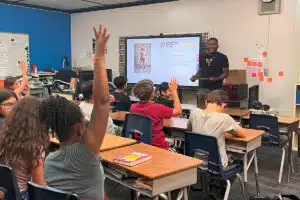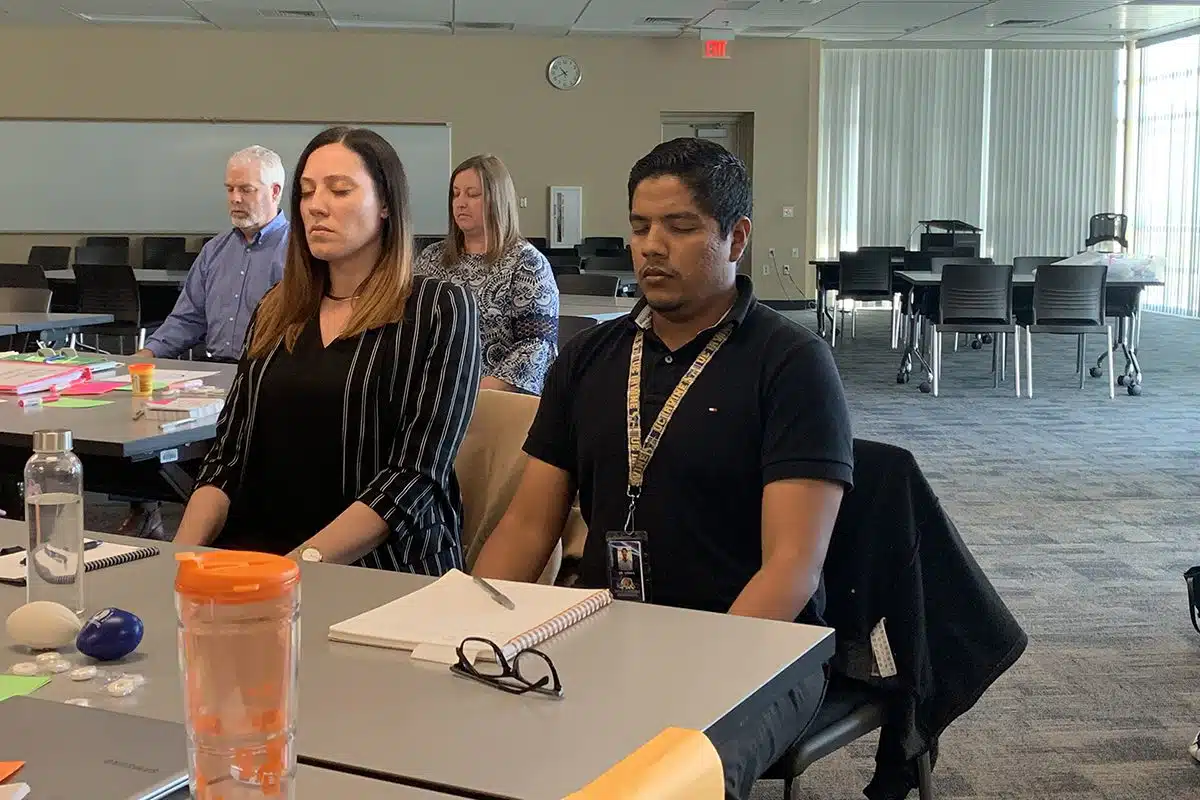
3 Effective Approaches to Enhance Events, Lessons and Meetings
At kid-grit, we are huge fans of CASEL (Collaborative for Academic, Social, and Emotional Learning).

Over the weekend, I was scrolling through several teachers of Tik Tok accounts to examine the pulse of their days. I came across a young teacher who had just come from a training. She was complaining that her school was providing mandatory training on selfcare. She was exasperated and said that it would’ve been better if they had just let her go home and take care of herself for that hour and a half. Sigh…
“Teacher stress levels skyrocketed as they pivoted to teaching online, in socially distanced classrooms, or both at the same time. They desperately tried to engage students who were checked out or who only appeared as a black box on Zoom. It was a grueling year, teachers said. And some say the start of this school year has been even worse, as the Delta variant threatens to upend in-person instruction once again. Teachers are also tasked both with catching students up academically and attending to their trauma and social-emotional needs.”
Madeline Will, Teachers Are Not OK, Even Though We Need Them to Be (EdWeek, September 2021)
As an 18 + year old educator, social emotional learning (SEL) practitioner and young business owner, I tried to listen to this teacher with an open mind. I tried not to take it personally and tried not to think that she was ungrateful for what her administration is trying to do. I shifted my mindset and thought about all the teachers who might feel the same exact way. And then, to be honest, I felt sad. Not only because we are a company that provides this exact kind of support for educators during a time when so many people are suffering, have burn out and are fatigued. I felt sad because this is the situation that we are in right now. And it’s hard — for everyone.
I should preface this blog with that I am a person of deep reflection, and it matters to me what we do as a company and how we do it. I think of myself as a practical and pragmatic human. I work hard to see things from everyone’s point of view and understand that there can be multiple sides to every situation. I believe that most people are finding it challenging to be happy right now unless you are completely disconnected from the world. Stay with me here while I work this out…
I recently facilitated an in-person professional development for a group of middle school counselors, it was five and half hours in length. By the time I finished, my throat was thrashed, and I was completely drained. It took me two days to recover. I cannot imagine being a teacher in the classroom, wearing a mask five days a week for hours and hours at a time. I also cannot imagine being a child looking at a teacher teaching with a mask on for five days a week for hours upon hours. To add on to the physical barrier we are all facing by wearing masks (and believe I am an advocate for this) not being able to see someone’s full face, communicate with ease, seeing expression and reactions when trying to build relationships in the classroom is also an emotional and mental barrier. No wonder educators are exhausted and irritated even more so now than ever.
“And 41 percent of teachers said they feel like they’re less effective at their job when they’re stressed. Research shows that when teachers are stressed out, the quality of their instruction, classroom management, and relationships with students all suffer. And students tend to be more stressed when their teachers are, which could negatively affect their academic performance and engagement.”
Madeline Will, Teachers Are Not OK, Even Though We Need Them to Be (EdWeek, September 2021)
@missdliteracy At least my room is still kind of neat
♬ original sound - Jennifer Lee Shaffer
Is the TikiTok video above not displaying? Click here to view it.
The intent of supporting teachers with wellness and coping strategies is to ensure that they are teaching great content with confidence and excitement, so that the outcome in the passage above ⬆ does not happen. Teachers need to be ‘well’ and ‘stable’ in the classroom, so our students do not suffer academically. That’s pretty basic. When administrators are hiring an outside professional agency to support their staff, because they are trying to alleviate these strenuous days and exhausting hours, it makes sense—they want to help! It shows they care, and it matters how their staff is doing emotionally, mentally, and physically. It shows they are working hard to show support in the best ways they know how during these new circumstances and frustrating times.
When I saw that Tik Tok post from a clearly unappreciative teacher, it made me wonder how administrators can help if teachers don’t want that type of support. It seems as if they can’t win. In another case, I facilitated a virtual session for a high school group of teachers in Georgia. During the session, we were discussing some of the SEL resources they needed to stay connected to their students in the classroom. Several teachers went out of their way to say that the kid-grit curriculum is great, but what they really needed were self-care strategies to maintain their own everyday workload and stress. Then I reached out to the administrator with this feedback, so far, he has not been receptive.
I don’t believe that forcing mental health or coping strategies on anyone who doesn’t want it is effective. And, let me share that it’s no fun facilitating for anyone who doesn’t want to be in the room (if you know, you know). What works for some, may not work for others. If administrators are providing only mindfulness and yoga opportunities, it may not go over that well. Read below. ⬇
“Encouraging yoga or meditation can’t make up for systemic issues that cause stress, experts say. “You can’t deep-breathe your way out of a pandemic; you cannot stretch your way out of terrible class sizes; you cannot ‘individual behavior’ your way out of structural problems,” said Chelsea Prax, the programs director of children’s health and well-being at the American Federation of Teachers. “Those are effective coping measures, but they don’t change the problem.”
Madeline Will, Teachers Are Not OK, Even Though We Need Them to Be (EdWeek, September 2021)
What we hope to accomplish in our Adult SEL sessions at kid-grit can be related to crisis OR everyday management strategies that are life long, practical, and easy to absorb. If teachers want to opt out, I believe they should have the choice. And if they want to participate, we make it safe for them to be exactly where they are, we give them permission to try it in the case they are actually considering applying these useful strategies – we acknowledge that this is new for districts and non-profits across the nation. We know that there are thousands of educators who don’t have these coping skills and desire to learn more. We also know that not everyone will come along, we know that there are those who are immovable, we leave that for administrators to shape their organization’s culture/climate. What I think would be useful for teachers is to acknowledge that if your district is offering these opportunities, it’s because it matters to them. Moreover, there may be a colleague in your organization that needs what the experts are sharing in ways you can’t even know. What I believe would be useful for administrators is to ask/poll teachers to find out ‘is this something you want?’ Provide a platform for teachers to have a voice in their own mental health, just the same way we do with youth – ask them — they will tell you.

At kid-grit, we are huge fans of CASEL (Collaborative for Academic, Social, and Emotional Learning).


Here at kid-grit, we had a wonderfully crazy month in October! Check out this blog post to hear more about what we were up to.